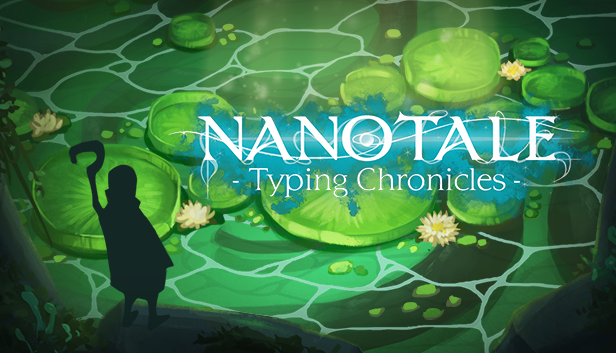Belgium-based Fishing Cactus was at GDC 2019 to showcase their upcoming Nanotale – Typing Chronicles, the successor to their critically acclaimed, Epistory – Typing Chronicles. The developer openly acknowledged comparisons between the two, discussing how Epistory influenced Nanotale, and where Nanotale diverges from its predecessor in what is now shaping up to be a typing game series.
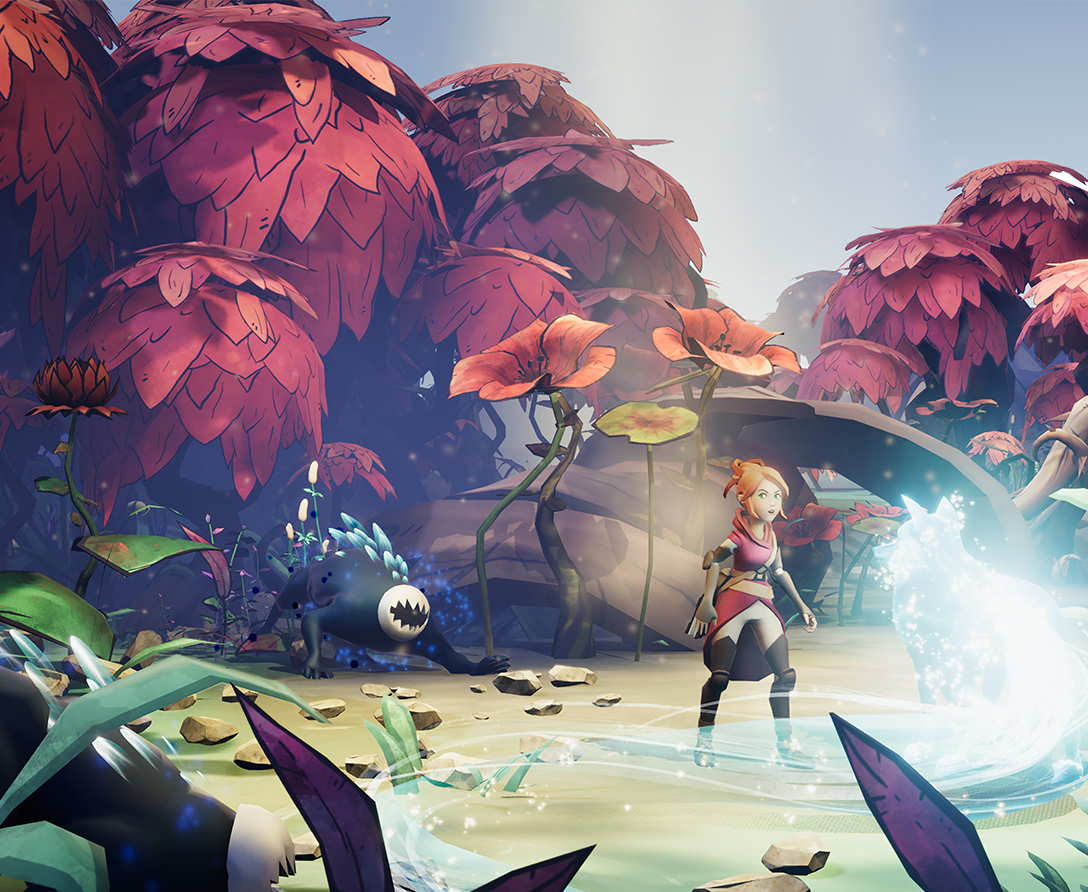
A Tale of Two Typing Games
Bruno Urbain, CEO at Fishing Cactus, said that Nanotale makes references to Epistory. He listed examples of what they had in common, like layers of story narrated through voiceover, and hints written directly on the environment.
The team also wants Nanotale to improve on what Epistory did. Urbain said the plot of Epistory felt a little light in some aspects. He added that players wanted more lore and story elements, which led to making Nanotale a more story-driven RPG.
There are other differences. Laurent Grumiaux, executive producer at Fishing Cactus, called Nanotale a “controlled sandbox,” in contrast to Urbain’s description of Epistory as more linear.
“[We’re] giving more creative freedom to the player to decide playstyle,” Grumiaux said as he continued to talk about Nanotale’s more sandbox-like experience.
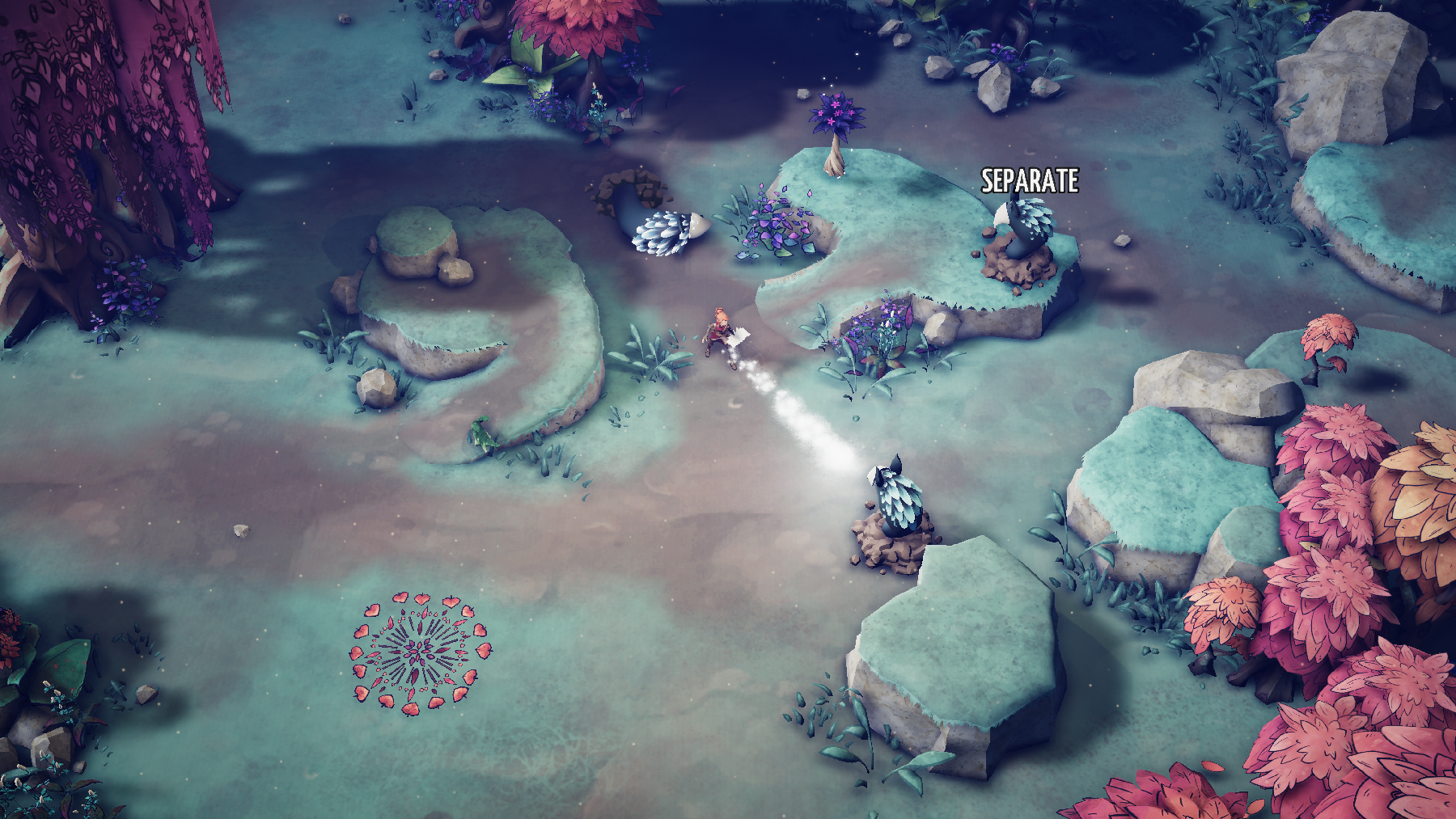
Grumiaux said players could choose to be more aggressive with direct actions, or more evasive. He added that Nanotale will have more options to cast magic.
“Not as complex as Magicka, but [Nanotale] has some Magicka DNA,” Grumiaux said, explaining that the new typing game will have a more in-depth magic system with modifiers.
“[There’s] broader action in the game,” Grumiaux said.
Building a World Archive
Urbain explained that Epistory was more about creation, fitting for a game that featured a protagonist trying to find inspiration to write. He added that Nanotale on the other hand focuses more on knowledge, with the archivist Rosalind as the new protagonist.
This has a direct influence on gameplay, as Urbain shares that knowledge of flora can be used to solve puzzles and deal with other creatures.
“Everything is about understanding how the world works,” Urbain said as he expanded on Nanotale’s archival focus. “Understanding the ecosystem is really key to understanding what the game is trying to tell people.”

According to Urbain, the Axolotl is the friendliest creature the player will encounter. Other creatures are either hostile or neutral. This doesn’t mean Axolotl is an herbivore; they eat other creatures too.
There is even more significance to the protagonist’s work. According to Urbain, as Rosalind is cataloging her world, she needs to make some critical decisions.
He gives one heavy example: “Does she want to save it, or not?”
Keyboard is Mightier than the Sword
Besides deciding a world’s fate, players will engage with it through typing. Urbain and Grumiaux showed a demo at GDC that featured Rosalind navigating a forest environment.
In the demo, Fishing Cactus showed an arsenal of words that players can use for different powers. (Players can gain more words as they progress through the game.)
Fishing Cactus demonstrated how this worked when Rosalind came across an ice barrier marked with the word “buttercup.”
In response, they typed the words “hot” and “ray” to have Rosalind cast a heat ray to melt it down. To select the target, players added the word “buttercup,” from the ice barrier, after “hot” and “ray.”
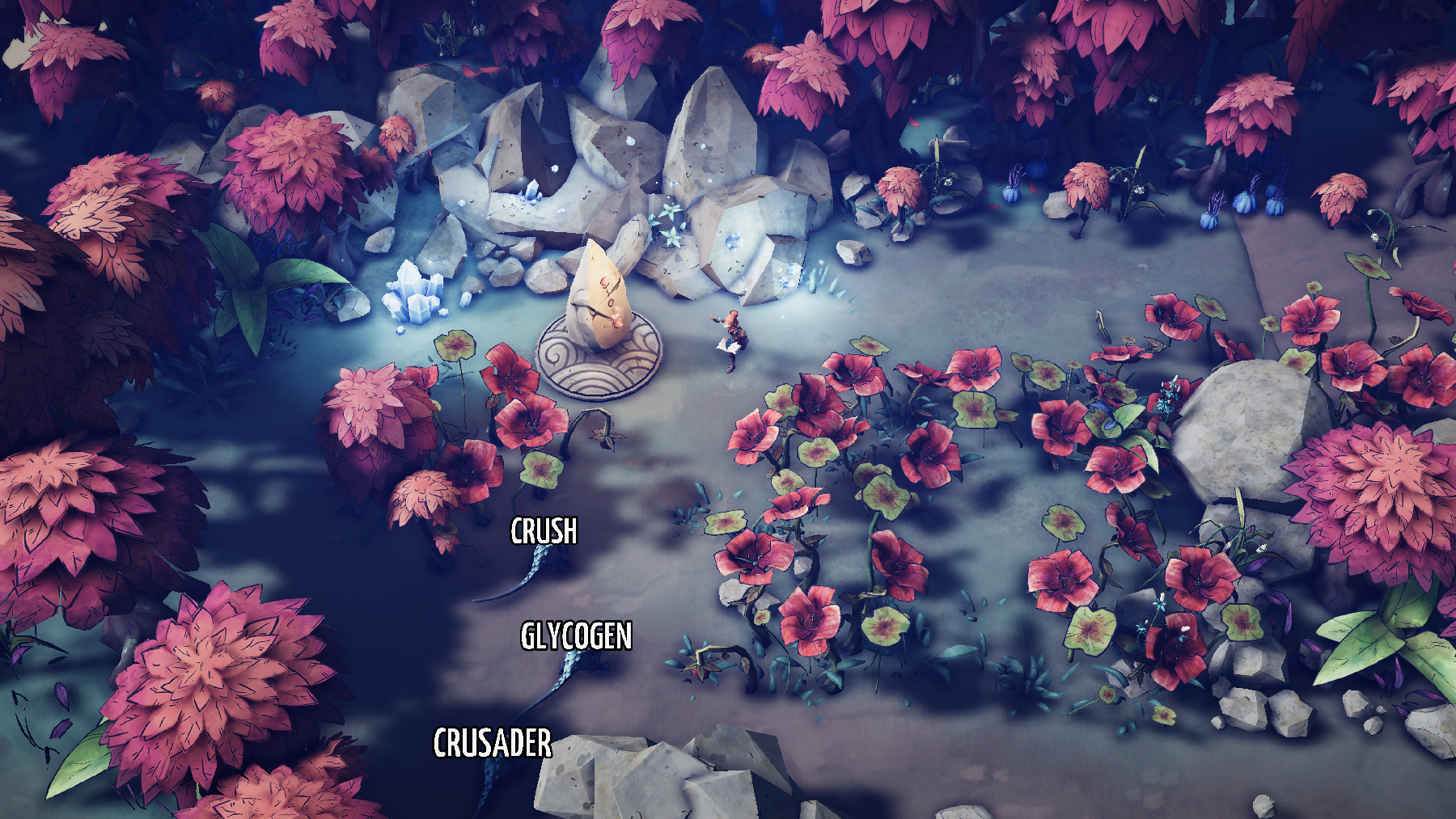
Fishing Cactus said that all words will be contextualized, like “hot” and “ray” already are. “Buttercup” on the ice was just a placeholder word in the demo. The devs plan to change it eventually to better match the graphics.
Urbain gave another example of how keeping the words in context work. He explained that words marking a treasure chest will relate to treasure.
Typing Levels Up
According to Fishing Cactus, typing difficulty depends on word length. Like Epistory, difficulty in Nanotale will scale up or down based on typing skill. The developer specified that the game will speed up for people with fast typing skills, and slow down for people who type slower.
The typing system in Nanotale will also be under more constraints than in Epistory. Fishing Cactus said that Epistory had no limits on health or magical power. Nanotale will be different, providing players with bars for HP and mana.
“You have to be careful about a lot more things,” Urbain said.
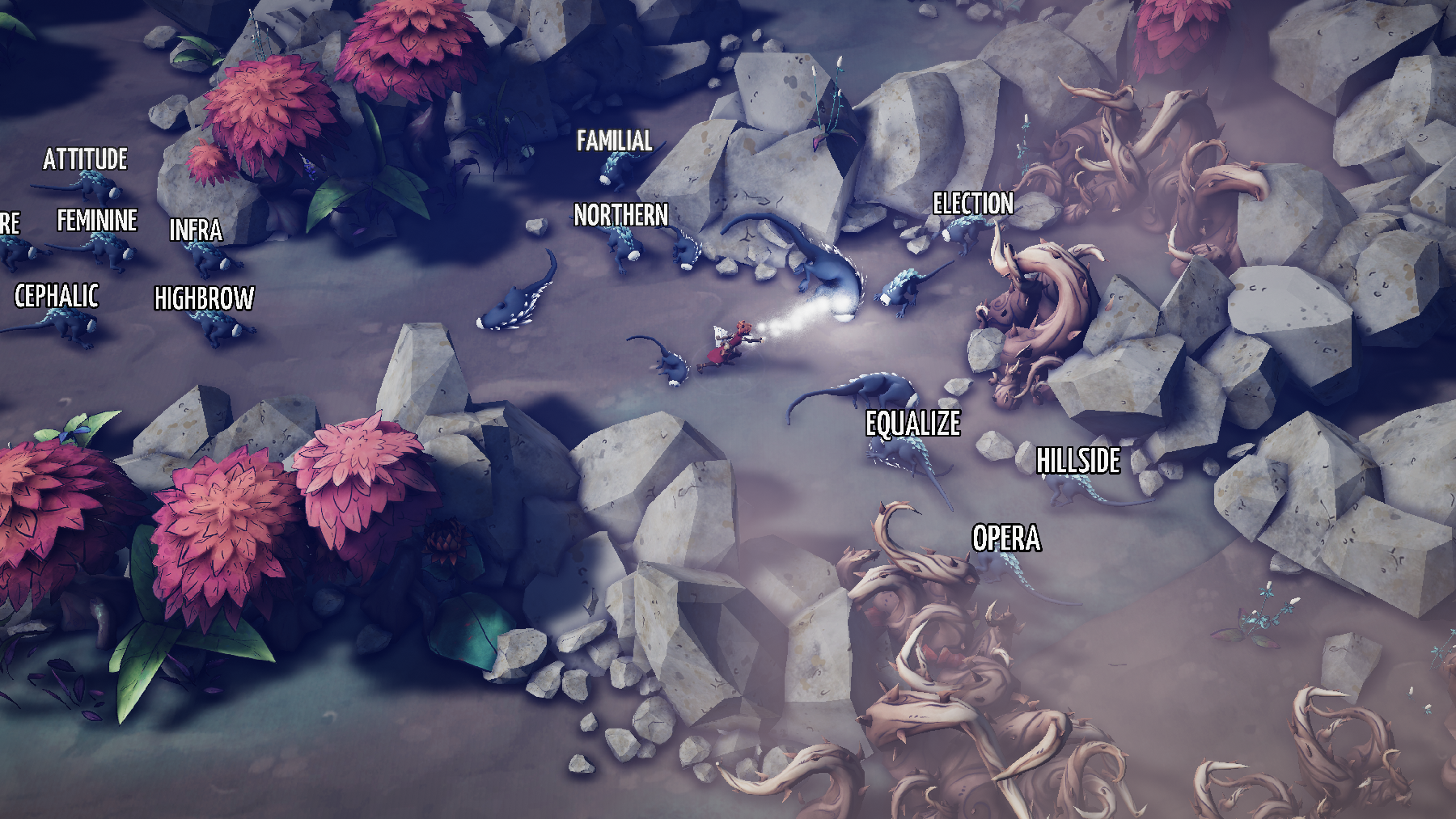
When asked why Fishing Cactus was making another typing game, Urbain said that he felt typing games were an underserved genre.
This strikes me as particularly true. The only other typing game I could recall before this year’s GDC was the zombie-themed The Typing of the Dead. Part of what intrigued me about Nanotale is that it’s a fantasy RPG typing game, a mix of genres that attracted me more than playing with zombies.
Including Players
Fishing Cactus eagerly shared stories about player mods for Epistory that revolved around people making custom dictionaries and changing the words they have to type to trigger actions in the game.
The team is looking to engage their audience in different ways with Nanotale. Grumiaux said they have been “super proactive” in sharing their new game, posting developmental work on Twitter.
“We really want people to see the buildup of the game and be part of the adventure,” Grumiaux said. “See how we are shaping the game.”

Concept for animation in Nanotale.
Fishing Cactus shared that the first public and playable demo of Nanotale would be at PAX East, and then it will go to EGX in London. According to the game’s Steam page, Nanotale will release later this year.
